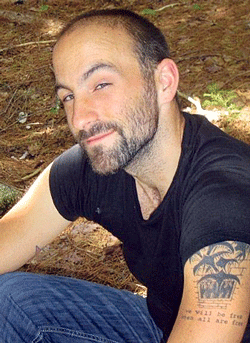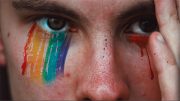By: Jason Lydon*/TRT Columnist–
The arrival of September, along with all of the back-to-school marketing, has a much different impact on me now that I am not in school. While I certainly appreciate glimpsing at the sale items in CVS, I tragically miss the florescent colored Trapper Keepers. In 2012, other than celebrating my lovely boyfriend’s birthday, September functions similarly to the rest of the year. Yet this back-to-school mentality invites us all to think about the needs of those who are going back into our education system. While I am no longer in school, the public education system that raised me belongs to all of us and we are all responsible for its effect on young people.
LGBTQ communities, organizations and activists are actively talking about the issue of bullying in our schools. Report after report shows that our young people experience horrendous harassment and harm when they are trying to go to school. Our young people are more likely to cause harm to their bodies, in large part due to their social isolation, and disproportionately carry weapons to school to defend themselves. Analysts have looked at the Youth Risk Behavior Survey and tell us time and time again that LGBTQ young people struggle in our school system, and yet things have hardly improved.
That boyfriend I mentioned earlier was recently at a training on health outcomes and LGBTQ young people. He left the training with slides full of information, survey results and statistics. One of the things he showed me was that LGBTQ identified young people in larger, more ethnically diverse, urban schools with less funding report feeling safer in school. What does this kind of information tell us about bullying? To start, it functions as a reminder to me that homogenous communities are harmful to our health. Certain white middle-class couples may choose to move to suburban areas because the Massachusetts Comprehensive Assessment System, MCAS, scores are “simply delightful” or because the school ranks “oh so high” with Ivy League college admittances. However, the safety and health of our young people are far more complicated than fancy degrees or MCAS schools. The advocacy we do to keep LGBTQ young people safe invites us into a much larger discussion about the school system. When we strategize to end bullying, we need to think about the whole school experience.
Alas, my sweetie and I did not come up with many solutions to the bullying problem and the needs of young LGBTQ people in schools. We did, however, come up with quite a few questions and some hopes I would like to share. Firstly, how do we support the resiliency of LGBTQ young people in a way that nurtures healthy coping mechanisms without shaming unhealthy ones? It has long been known that LGBTQ young people are more likely to use drugs, have unplanned teen pregnancies, smoke cigarettes and consume alcohol. These are coping mechanisms, practices that provide a distraction from the struggles of home, school, work, friends, places of worship and so forth. We want to support young people in healthier choices, but we need do so in a way that does not stigmatize the other choices they have made, choices that while harmful to their bodies, may be the choices that make the days a bit more bearable.
Secondly, how do we put an end to bullying without punishment or criminalization? While there are bullies who are captains of the football team or head cheerleaders, there are many, many bullies who find themselves at the bottom of the social ladder as well. Zero-tolerance anti-bullying policies can lead to more young people involved with the criminal justice system and a further stigmatization of young people (and teachers) who report incidences of bullying. How can classrooms foster an environment where bullying is not tolerated, but does not rely upon ostracizing bullies or labeling LGBTQ young people as victims? An absolute requirement to even come close to answering these questions is to put an end to standardized testing and so-called time on learning requirements that take away from potential authentic learning about the realities of living in our complex, diverse, beautiful yet painful world.
Lastly, for today, I am filled with hope in the leadership of our young people. I have written before about the need for us to support youth leaders, and that could not be more true when it comes to school reform. The Hispanic/Black Gay Coalition, HBGC, is organizing their annual youth conference coming up quickly in October. This is a great place for young people to continue gaining skills they need to navigate their schools, including a workshop on how to start a Gay/Straight Alliance. Our young people hold a multitude of identities along with their sexuality and gender identity. The work of organizations like HBGC is key for meeting the needs of LGBTQ youth of color who, while experiencing much of the above, are simultaneously navigating racist systems that too often ignore their realities. When we support young people’s leadership they have the potential to transform the education system that too often holds them back. Learn what services exist for young people, assist in fundraising for youth events, become an adult advisor to a GSA, be creative and get involved. Even if you are not picking up new three-ring binders or fancy pens for the back-to-school season, it is your responsibility to support our young people in their journey to be safe, healthy and filled with knowledge in this school year.
*Rev. Jason Lydon is a Unitarian Universalist minister in Boston. He is a long time anti-prison organizer and founder of Black & Pink, an LGBTQ-focused effort working toward the abolition of the prison industrial complex. Jason is also an avid lover of famous people and blockbuster action flicks. You can reach Jason at jason@blackandpink.org.








